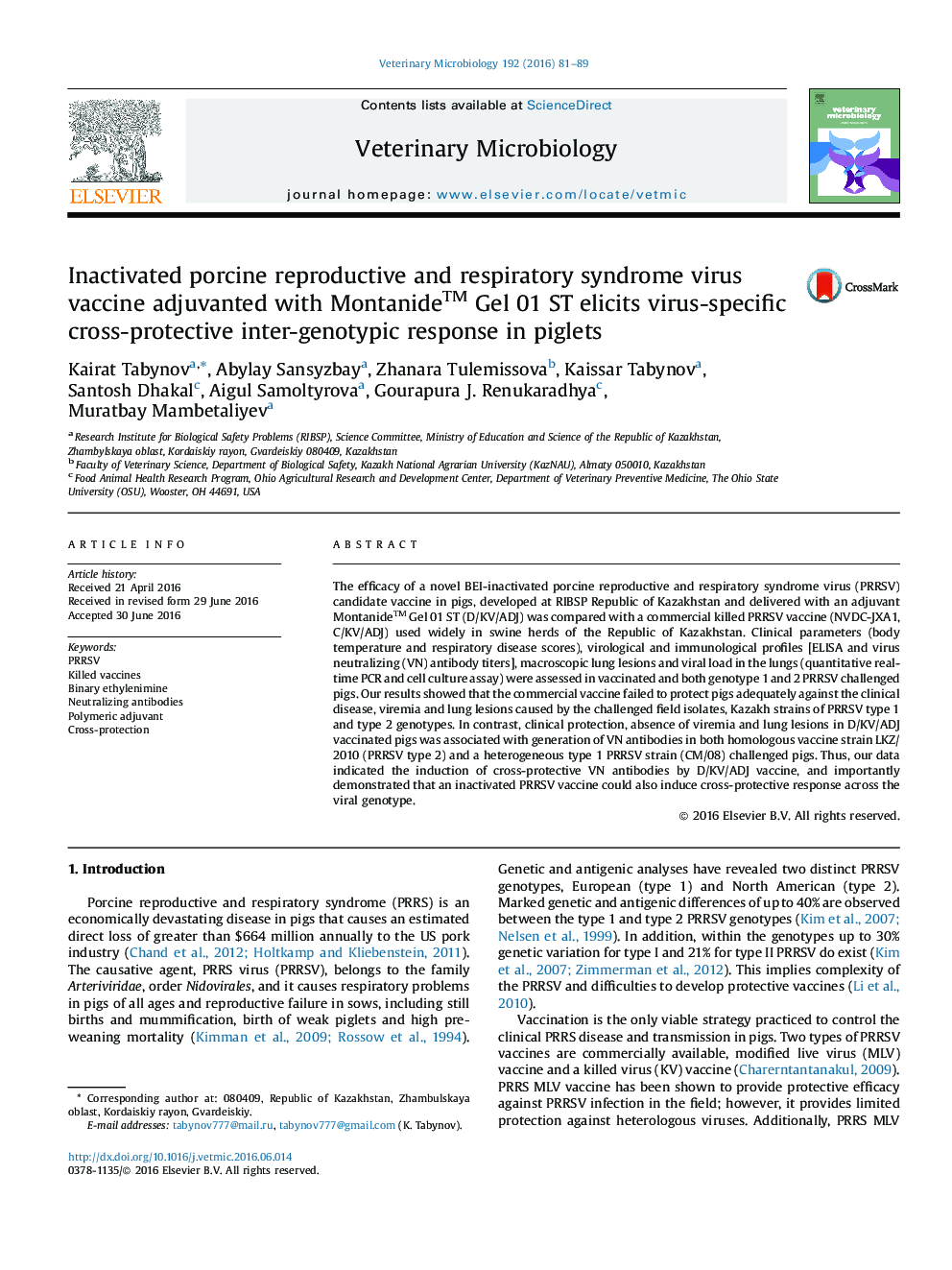| Article ID | Journal | Published Year | Pages | File Type |
|---|---|---|---|---|
| 5799621 | Veterinary Microbiology | 2016 | 9 Pages |
•BEI-inactivated PRRSV candidate vaccine was developed using local Kazakh viral strains.•Immune response and clinical disease were compared with a commercial PRRSV vaccine.•Compared to commercial vaccine our vaccine induced better cross-protective response.•Use of a potent adjuvant and local PRRSV strains in the vaccine formulation is beneficial.
The efficacy of a novel BEI-inactivated porcine reproductive and respiratory syndrome virus (PRRSV) candidate vaccine in pigs, developed at RIBSP Republic of Kazakhstan and delivered with an adjuvant Montanide™ Gel 01 ST (D/KV/ADJ) was compared with a commercial killed PRRSV vaccine (NVDC-JXA1, C/KV/ADJ) used widely in swine herds of the Republic of Kazakhstan. Clinical parameters (body temperature and respiratory disease scores), virological and immunological profiles [ELISA and virus neutralizing (VN) antibody titers], macroscopic lung lesions and viral load in the lungs (quantitative real-time PCR and cell culture assay) were assessed in vaccinated and both genotype 1 and 2 PRRSV challenged pigs. Our results showed that the commercial vaccine failed to protect pigs adequately against the clinical disease, viremia and lung lesions caused by the challenged field isolates, Kazakh strains of PRRSV type 1 and type 2 genotypes. In contrast, clinical protection, absence of viremia and lung lesions in D/KV/ADJ vaccinated pigs was associated with generation of VN antibodies in both homologous vaccine strain LKZ/2010 (PRRSV type 2) and a heterogeneous type 1 PRRSV strain (CM/08) challenged pigs. Thus, our data indicated the induction of cross-protective VN antibodies by D/KV/ADJ vaccine, and importantly demonstrated that an inactivated PRRSV vaccine could also induce cross-protective response across the viral genotype.
